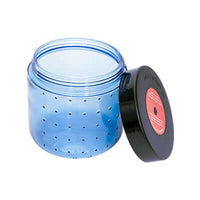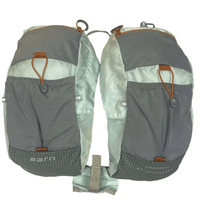Survival TV shows are great entertainment. They’re packed with shocking images of the host trying to keep dry in the heavy rainfall, building shelter with just branches & tree leaves, chewing insects for survival and much more.
Few of us would know what to do if we were lost in the wild which is why these survival shows are so fascinating to us. We watch them with wide eyes hoping to learn a thing or two in case we’re ever in a similar situation—but that’s where things go wrong.
Although these shows look educational, they are from it. The aim of such shows is to gather ratings by providing entertainment. Audiences are made to believe that the host is stuck in the wilderness by themselves but in reality their support crew is just 20 feet away at all times.
Just like most reality shows, survival TV shows are heavily scripted and focus on adding drama rather than providing facts.
The truth is that many of the survival techniques shown on TV can do you more harm than good.
Here are some tips/techniques shared on survival TV shows which can put your life at serious risk.
1. Finding food is most important

You don’t have to watch many survival shows to know that they make food the top priority.
Humans can survive without food for 6 weeks or so, so no, you don’t have to go into the river in hopes to get fish and you definitely don’t have to so searching for insects for dinner.
Not having food for a few days won’t kill you but being stuck in extreme weather conditions without water definitely will.
2. Eating unknown plants

Rookie hikers and outdoor campers use books to help them identify edible plants in the wild. But instead of objectively looking at the plants in front of them, they subconsciously make them fit the description.
There’s an abundance of poisonous plants in the wilderness that can kill you. Think of it this way, choosing not to eat the strange plant won’t kill you right way but eating an unknown poisonous plant may take your life within the hour!
3. Good shelter requires a roof
Roofs are important in areas where you have a possibility of heavy rainfall or being attacked by big animals but that’s usually limited to dense forests/jungles, etc.
On most terrains, you won’t need a roof over your head to make it through the night because it’s not the ceiling you need to worry about; it’s the ground.
There’s no point in spending 10 hours building a roof when you haven’t figured out how you’re going to keep warm on the ground.
Your priority should be to build an insulated bed that will keep you warm through the night. Once you have that, you can then start thinking about putting a roof over your head.
4. Sucking the poison out of a snakebite

Removing snake poison by sucking on a wound makes for incredibly dramatic scenes but it should never be done in real life!
Snakebites leave wounds; by sucking on it, you’re exposing it to more bacteria which will only make it worse and increase chances of infection.
Keep in mind that when snakes extract their teeth from a bite, they leave behind venom on the skin; sucking on which can burn your mouth, trachea and even your stomach if you happen to accidentally swallow it.
Because survival TV shows are filled with incorrect information, it’s better to do your own research using reliable sources.
If you’re new to outdoor adventures then take a veteran hiker along with you. Get yourself physically and mentally prepared for the hike before you head out. Find yourself functional and comfortable backpacks and fill them up with hiking essentials that can help you get through unforeseen circumstances.
At Light Hiking Gear we offer premium backpacking gear that includes daypacks, UltraLites, StrongLites, hipbelts, hiking accessories and more!
If you’re looking for comfortable, multifunctional backpacks for hiking, we’re the place to be!




0 comments